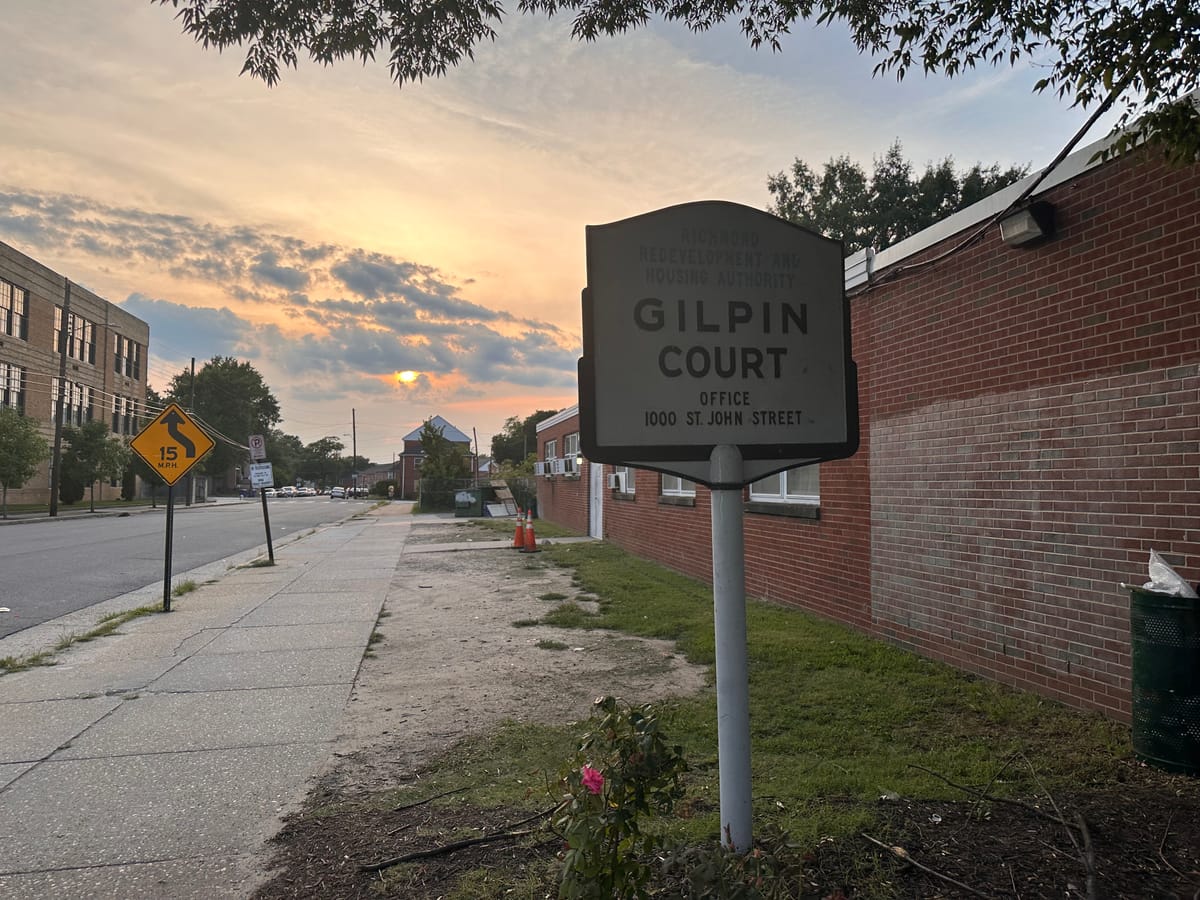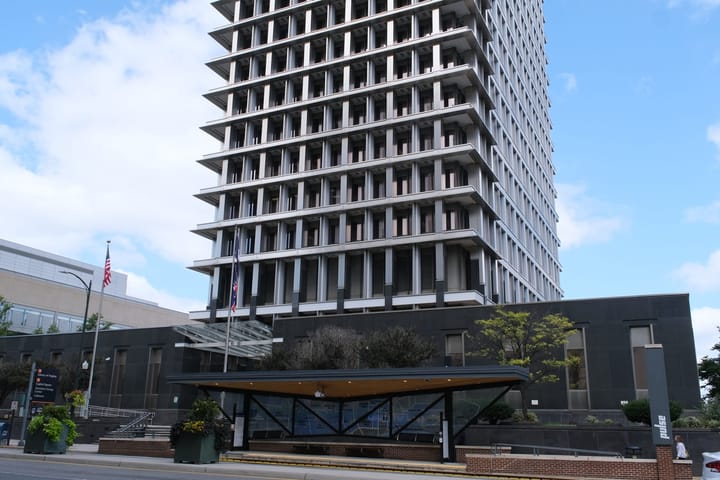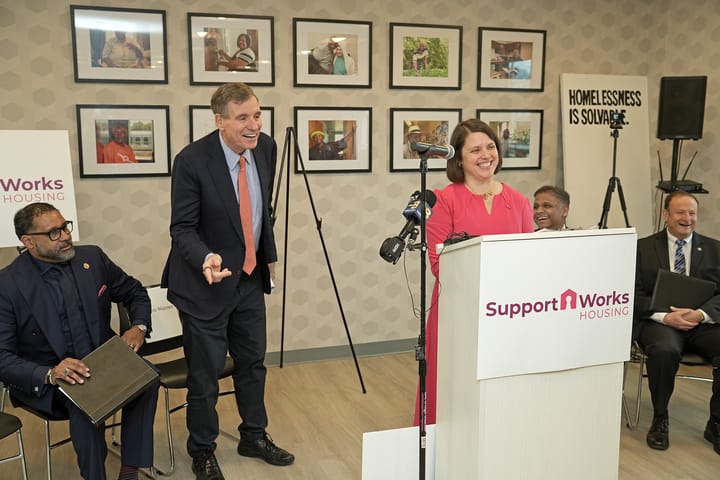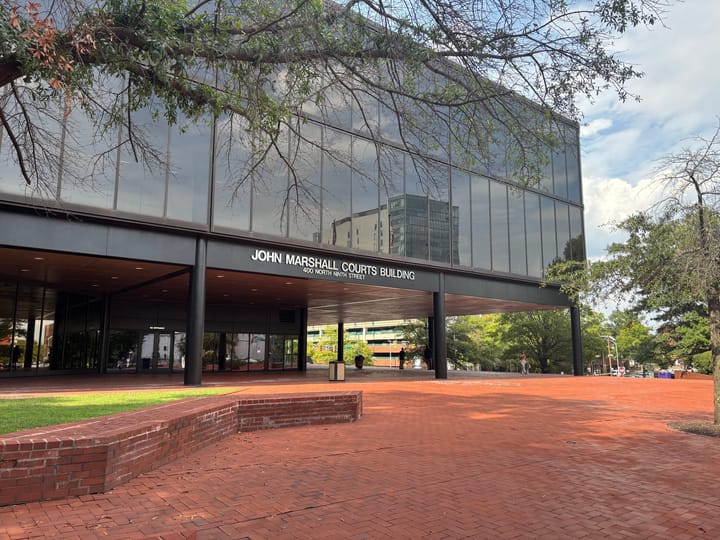
Council, RRHA split over who has the power to approve Gilpin redevelopment agreement
A legal disagreement is brewing between Richmond City Council and the city’s public housing authority over whether the authority had the right to sign an agreement to redevelop Gilpin Court without getting Council approval first.
On Monday night, Council unanimously voted to have Richmond’s attorney send a letter to the Richmond Redevelopment and Housing Authority stating its belief that RRHA was required to get City Council’s approval “prior to entering into a Master Development Agreement for the redevelopment of Gilpin Court.”
RRHA CEO Steven Nesmith signed that agreement with developer HRI Communities on May 20. The 124-page document outlines the terms under which HRI would redevelop Gilpin — the city’s oldest and largest public housing community, built between 1941 and 1942 and housing roughly 2,000 people — into a mixed-income community.
“The law is very clear that before the RRHA has the authority to be able to go into an agreement, our body needed to vote in support of that, and that did not happen,” said Councilor Kenya Gibson, whose 3rd District is home to Gilpin and who introduced the resolution for a fast-tracked vote.
In support of its position, Council is pointing to several sections of state law that say a public housing authority “shall not implement any redevelopment plan … until the governing body of the locality has approved the redevelopment plan.”
The master development agreement, Council argues in its resolution, is effectively a redevelopment plan “and, therefore, requires Council approval following a public hearing, which has not occurred.”
RRHA, however, disputes that view, arguing that the law only applies to any new “redevelopment area,” and not properties already owned and operated by the authority for public housing.
RRHA “is obligated to obtain City Council approval to adopt a redevelopment plan when the authority is seeking to ‘create a redevelopment area,’” wrote Nesmith in a July 21 email to City Council, as well as members of Mayor Danny Avula’s administration and the General Assembly. “However, an authority is not required to adopt a redevelopment area for all development activities that an authority engages in, for example, when RRHA redevelops on its own public housing property.”
Exactly what the outcome of the disagreement will be is unclear. A letter dated July 15 from City Attorney Laura Drewry to Nesmith and RRHA’s Board of Commissioners indicates the Council is questioning the legal validity of the May agreement.
“The City Council asserts that, absent both Board authorization and Council approval, the MDA is not valid and cannot proceed to implementation,” reads the letter, which is stamped “Confidential.”
Angela Fountain, a spokesperson for RRHA, pointed out in an email that the Board of Commissioners formally gave Nesmith the authority to enter into the master development agreement under a resolution it passed on Oct. 3, 2023.
The nine-member board has “sole authority to enter into any agreement that it deems necessary in matters of redevelopment of the public housing communities owned by RRHA,” she wrote. “This is no different than the Master Development Agreement with the developer for Creighton Court.”
RRHA signed a master development agreement with developer The Community Builders in February 2015 to redevelop Creighton, a process that is still ongoing. There is no record of City Council approving that agreement, although it later approved a larger community plan for the redeveloped Creighton that was drawn up jointly by RRHA and The Community Builders. Several recent annual plans drawn up by the authority note that “RRHA has selected a development partner for Creighton Court and Mosby Court, and plans to do the same for Gilpin, Fairfield, Hillside, and Whitcomb Courts.”
“Given that this has never been an issue, it is puzzling why it is being raised now,” wrote Fountain.
Questions of oversight
While all nine members of City Council backed Monday’s resolution, several appeared uncertain about the power they might have over RRHA, which like other public housing authorities is a political subdivision of the state and not merely a department overseen by local officials.
Council President Cynthia Newbille, who reminded her colleagues that she grew up in Richmond’s Whitcomb Court, said she had “major concerns” with the letter. And Councilor Reva Trammell (8th District) at one point asked, “Do we council members have the authority to tell RRHA what to do with their property when it's not our property?”
“It'd be like them coming over here telling us what to do at City Hall,” she said.
“All that I know is that the state law is very clear,” Gibson reiterated. “It says an authority shall not implement any redevelopment plan under this law until the governing body of the locality has approved the redevelopment plan, and we haven't approved it.”
Gibson was backed most vocally by Councilor Stephanie Lynch (5th District), who sharply criticized RRHA and said that “when we are making moves to try and stop the master development agreement, we are not trying to stop redevelopment. We are trying to delay displacement, because that is what will happen if we were to allow this to move forward.”
Several members of the public, including at least three Gilpin residents, also praised the resolution, with one, Kiara Harris, saying she wanted “more oversight, more involvement from the community.”
“Most of the residents do not know what's going on. It's not a robust communication from RRHA,” she said.
Given the conflicting views on the limits of RRHA’s powers, Newbille repeatedly called for a meeting between City Council and the authority to get clarity about the Gilpin plans.
“I know how old our public housing units are and that they need to be addressed. And anything that slows down [that process] is a challenge for me,” she said. “The sooner we can get to the table, get clarification, get absolute clarification about who's required to do what to whom is critical.”
Asked about the situation, Mira Signer, a spokesperson for Mayor Danny Avula, said in a statement that any redevelopment requires residents, community members, City Council and his administration to “be fully aligned.”
“The housing authority staff reports to a board that is fully appointed by Richmond City Council, and Council is within its rights to ask questions of the RRHA board and administration about Gilpin Court and related issues,” she said, adding, “Clearly, there is much work to do.”
Contact Reporter Sarah Vogelsong at svogelsong@richmonder.org
The Richmonder is powered by your donations. For just $9.99 a month, you can join the 1,000+ donors who are keeping quality local journalism alive in Richmond.






